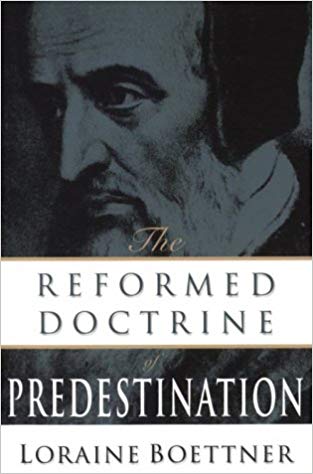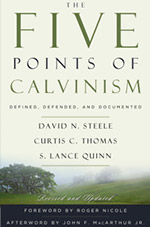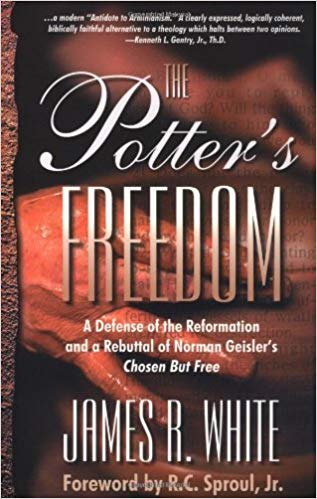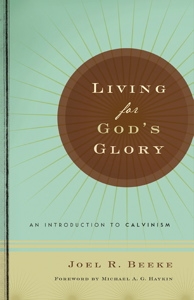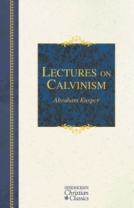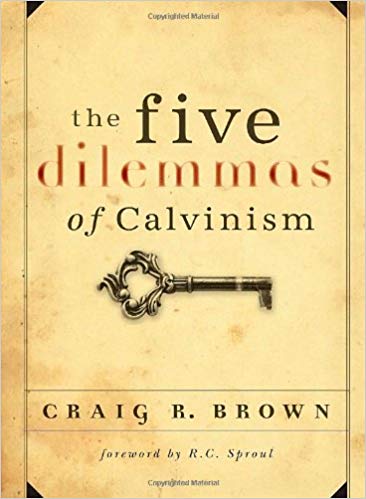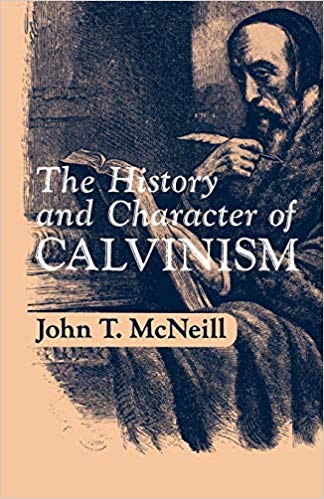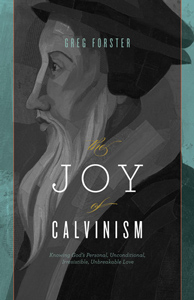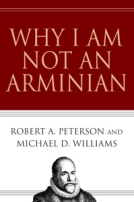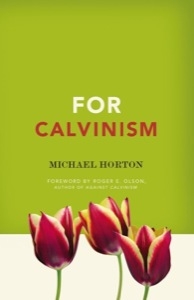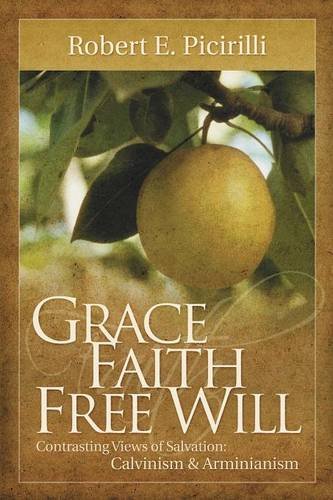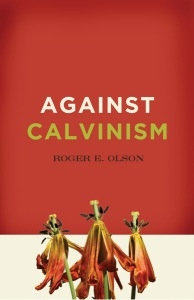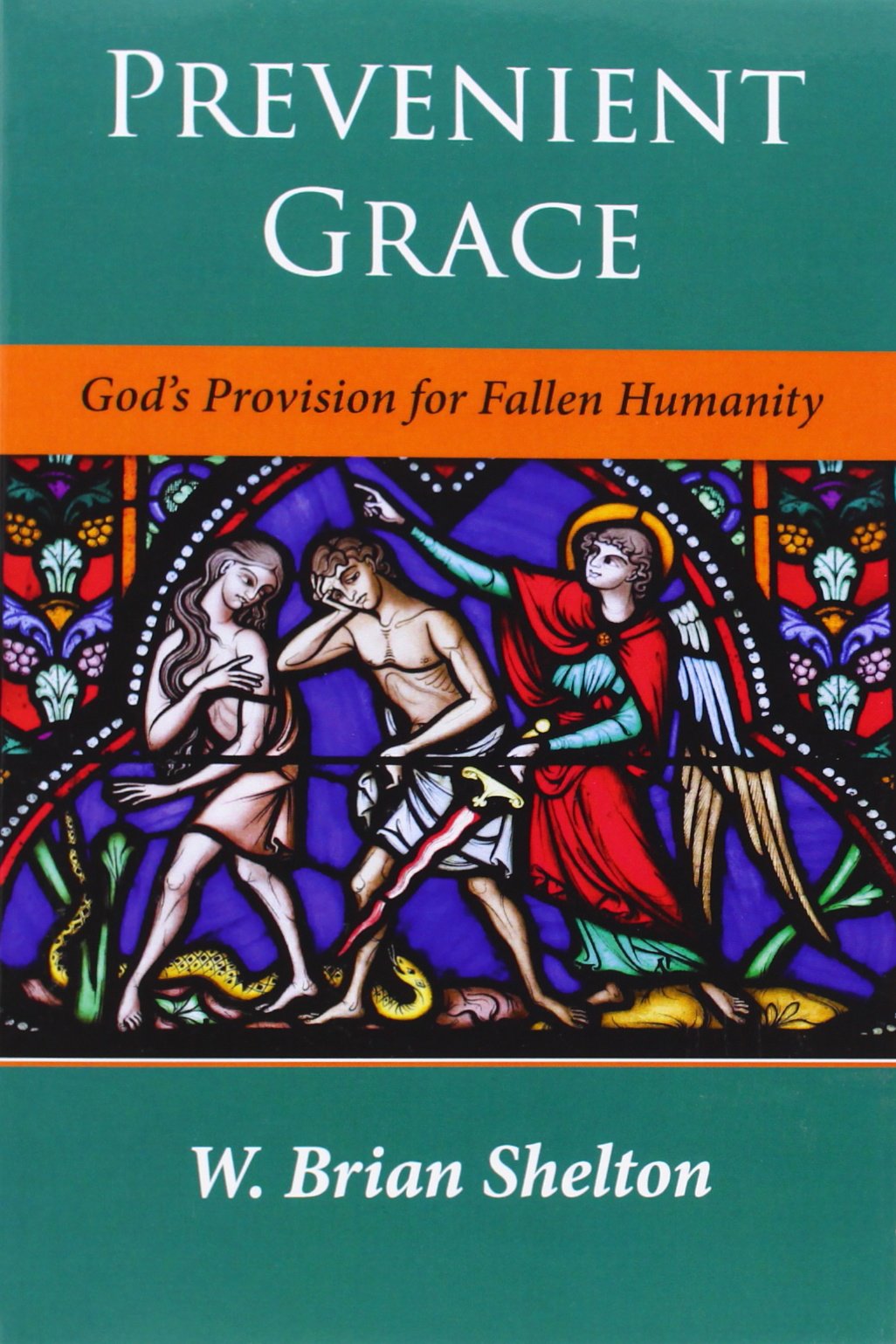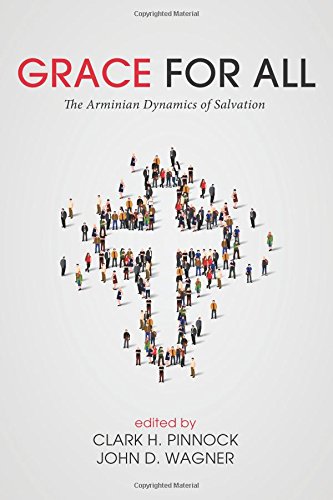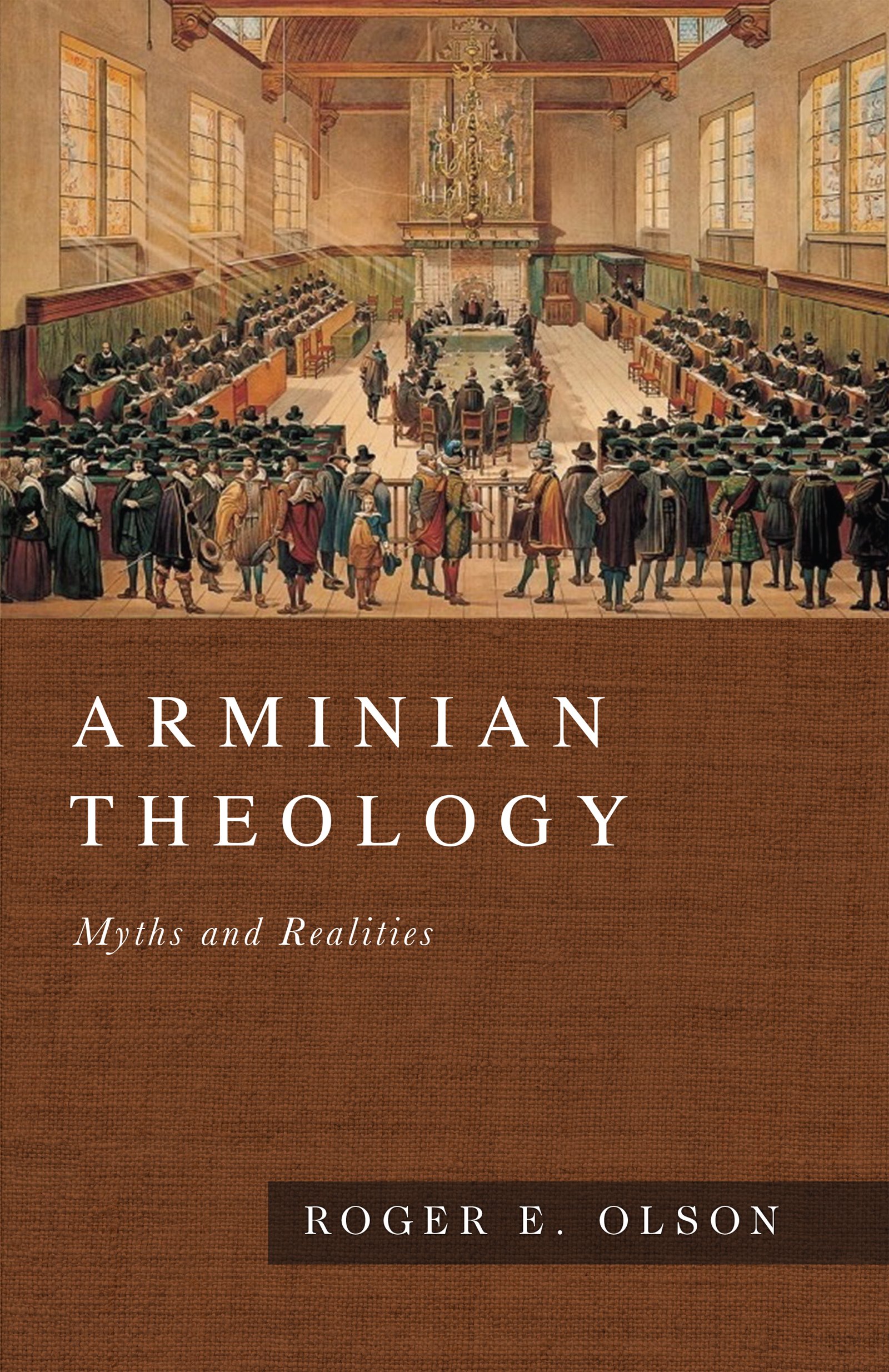From what has been said concerning the election of some, it would unavoidably follow, even supposing the Scriptures had been silent about it, that there must be a rejection of others, as every choice does, most evidently and necessarily, imply a refusal, for where there is no leaving out there can be no choice. But beside the testimony of reason, the Divine Word is full and express to our purpose; it frequently, and in terms too clear to be misunderstood, and too strong to be evaded by any who are not proof against the most cogent evidence, attests this tremendous truth, that some are ”of old fore-ordained to condemnation.’ I shall, in the discussion of this awful subject, follow the method hitherto observed, and throw what I have to say into several distinct positions supported by Scripture.
POSITION 1.–God did, from all eternity, decree to leave some of Adam’s fallen posterity in their sins, and to exclude them from Christ and His benefits. For the proof of this, let it be observed that in all ages the much greater part of mankind have been destitute even of the external means of grace, and have not been favored with the preaching of God’s Word or any revelation of His will. Thus, anciently, the Jews, who were in number the fewest of all people, were, nevertheless, for a long series of ages, the only nation to whom the Deity was pleased to make any special discovery of Himself, and it is observable that our Lord Himself principally confined the advantages of His public ministry to that people; nay, He forbade His disciples to go among any others (Matt. x. 5, 6), and did not commission them to preach the Gospel indiscriminately to Jews and Gentiles until after His resurrection (Mark xvi. 15; Luke xxiv. 47). Hence many nations and communities never had the advantage of hearing the Word preached, and consequently were strangers to the faith that comes by the Word.
It is possible, that some individuals in these unenlightened countries might belong to the secret election of grace, and the habit of faith might be wrought in these. However, be that as it will, our argument is not affected by it. It is evident that the nations of the world were generally ignorant, not only of God Himself, but likewise of the way to please Him, the true manner of acceptance with Him, and the means of arriving at the everlasting enjoyment of Him. Now, if God had been pleased to have saved those people, would He not have vouchsafed them the ordinary means of salvation? Would He not have given them all things necessary in order to that end? But it is undeniable matter of fact that He did not, and to very many nations of the earth does not at this day. If, then, God can consistently with His attributes deny to some the means of grace, and shut them up in gross darkness and unbelief, why should it be thought incompatible with His immensely glorious perfections to exclude some persons from grace itself, and from that eternal life which is connected with it, especially seeing He is equally the Lord and sovereign Disposer of the end to which the means lead, as of the means which lead to that end? Both one and the other are His, and He most justly may, as He most assuredly will, do what He pleases with His own.
Besides, it being also evident that many, even of them who live in places where the Gospel is preached, as well as of those among whom it never was preached, die strangers to God and holiness, and without experiencing anything of the gracious influences of His Spirit, we may reasonably and safely conclude that one cause of their so dying is because it was not the Divine will to communicate His grace unto them, since, had it been His will, He would actually have made them partakers thereof, and had they been partakers of it they could not have died without it. Now, if it was the will of God in time to refuse them this grace, it must have been His will from eternity, since His will is, as Himself, the same yesterday, to-day, and for ever.
Since God’s actions are the fruits of His eternal purpose, we may safely, and without any danger of mistake, argue from them and infer that God therefore does such and such things, because He decreed to do them, His own will being the sole cause of all His works. So that, from His actually leaving some men in final impenitency and unbelief, we assuredly gather that it was His everlasting determination so to do, and consequently that He reprobated some from before the foundation of the world. And as this inference is strictly rational, so is it perfectly Scriptural. Thus the Judge will in the last day declare to those on the left hand, ”I never knew you’ (Matt. vii. 23), i.e., ”I never, no, not from eternity, loved, approved or acknowledged you as Mine.’
Our Lord (in John xvii.) divides the whole human race into two great classes–one He calls the world; the other, ‘the men who were given Him out of the world.” The latter, it is said, the Father loved, even as He loved Christ Himself (ver. 23), but He loved Christ ‘before the foundation of the world’ (ver. 24), i.e., from everlasting; therefore He loved the elect so too, and if He loved these from eternity, it follows, by all the rules of antithesis, that He rejected the others as early. So, ”The children being not yet born, neither having done good or evil, that the purpose of God,’ etc. (Rom. ix.). From the example of the two twins, Jacob and Esau, the apostle infers the eternal election of some men and the eternal rejection of all the rest.
POSITION 2.–Some men were, from all eternity, not only negatively excepted from a participation of Christ and His salvation, but positively ordained to continue in their natural blindness, hardness of heart, etc., and that by the just judgment of God. (See Exod. ix; 1 Sam. ii. 25; 2 Sam. xvii. 14; Isa. vi. 9-11; 2 Thess. ii. 11, 12.) Nor can these places of Scripture, with many others of like import, be understood of an involuntary permission on the part of God, as if God barely suffered it to be so, as it were by constraint, and against His will, for He permits nothing which He did not resolve and determine to permit. His permission is a positive, determinate act of His will, as Augustine, Luther and Bucer justly observe. Therefore, if it be the will of God in time to permit such and such men to continue in their natural state of ignorance and corruption, the natural consequence of which is their falling into such and such sins (observe God does not force them into sin, their actual disobedience being only the consequence of their not having that grace which God is not obliged to grant them)–I say, if it be the will of God thus to leave them in time (and we must deny demonstration itself, even known absolute matter of fact, if we deny that some are so left), then it must have been the Divine intention from all eternity so to leave them, since, as we have already had occasion to observe, no new will can possibly arise in the mind of God. We see that evil men actually are suffered to go on adding sin to sin, and if it be not inconsistent with the sacred attributes actually to permit this, it could not possibly be inconsistent with them to decree that permission before the foundations of the world were laid.
Thus God efficaciously permitted (having so decreed) the Jews to be, in effect, the crucifers of Christ, and Judas to betray Him (Acts iv. 27, 28; Matt. xxvi. 23, 24). Hence we find Augustine speaking thus: ‘Judas was chosen, but it was to do a most execrable deed, that thereby the death of Christ, and the adorable work of redemption by Him, might be accomplished. When therefore we hear our Lord say, ‘Have not I chosen you twelve, and one of you is a devil’ we must understand it thus, that the eleven were chosen in mercy, but Judas in judgment; they were chosen to partake of Christ’s Kingdom; he was chosen and pitched upon to betray Him and be the means of shedding His blood.’
POSITION 3.–The non-elect were predestinated, not only to continue in final impenitency, sin and unbelief, but were likewise, for such their sins, righteously appointed to infernal death hereafter.
This position is also self-evident, for it is certain that in the day of universal judgment all the human race will not be admitted into Glory, but some of them transmitted to the place of torment. Now, God does and will do nothing but in consequence of His own decree (Psalm cxxxv. 6; Isa. xlvi. 11; Eph. I. 9, 11); therefore the condemnation of the unrighteous was decreed of God, and if decreed by Him, decreed from everlasting, for all His decrees are eternal. Besides, if God purposed to leave those persons under the guilt and the power of sin, their condemnation must of itself necessarily follow, since without justification and sanctification (neither of which blessings are in the power of man) none can enter heaven (John xiii. 8; Heb. xii. 14). Therefore, if God determined within Himself thus to leave some in their sins (and it is but too evident that this is really the case), He must also have determined within Himself to punish them for those sins (final guilt and final punishment being correlatives which necessarily infer each other), but God did determine both to leave and to punish the non-elect, therefore there was a reprobation of some from eternity. Thus, ‘Go, ye cursed, into everlasting fire, prepared for the devil and his angels’ (Mt. xxv.); for Satan and all his messengers, emissaries and imitators, whether apostate spirits or apostate men.
Now, if penal fire was, in decree from everlasting, prepared for them, they, by all the laws of argument in the world, must have been in the counsel of God prepared, i.e., designed for that fire, which is the point I undertook to prove. Hence we read of: ‘vessels of wrath fitted to destruction,’ put together, made up, formed or fashioned, for perdition (Rom. ix.), who are and can be no other than the reprobate. To this multiply Scriptures on this head would be almost endless; for a sample, consult Prov. xvi. 4; 1 Peter ii. 8; 2 Peter ii.12; Jude 4; Rev. xiii. 8.
POSITION 4.–As the future faith and good works of the Elect were not the cause of their being chosen, so neither were the future sins of the reprobate the cause of their being passed by, but both the choice of the former and the decretive omission of the latter were owing, merely and entirely, to the sovereign will and determinating pleasure of God.
We distinguish between preterition, or bare non-election, which is a purely negative thing, and condemnation, or appointment to punishment: the will of God was the cause of the former, the sins of the non-elect are the reason of the latter. Though God determined to leave, and actually does leave, whom He pleases in the spiritual darkness and death of nature, out of which He is under no obligation to deliver them, yet He does not positively condemn any of these merely because He hath not chosen them, but because they have sinned against Him. (See Rom. 1. 21-24; Rom. ii. 8, 9; 2 Thess. ii. 12.) Their preterition or non-inscription in the book of life is not unjust on the part of God, because out of a world of rebels, equally involved in guilt, God (who might, without any impeachment of His justice, have passed by all, as He did the reprobate angels) was, most unquestionably, at liberty, if it so pleased Him, to extend the scepter of His clemency to some and to pitch upon whom He would as the objects of it. Nor was this exemption of some any injury to the non-elect, whose case would have been just as bad as it is, even supposing the others had not been chosen at all. Again, the condemnation of the ungodly (for it is under that character alone that they are the subjects of punishment and were ordained to it) is not unjust, seeing it is for sin and only for sin. None are or will be punished but for their iniquities, and all iniquity is properly meritorious of punishment: where, then, is the supposed unmercifulness, tyranny or injustice of the Divine procedure?
POSITION 5. –God is the creator of the wicked, but not of their wickedness; He is the author of their being, but not the infuser of their sin.
It is most certainly His will (for adorable and unsearchable reasons) to permit sin, but, with all possible reverence be it spoken, it should seem that He cannot, consistently with the purity of His nature, the glory of His attributes, and the truth of His declarations, be Himself the author of it. ‘Sin,’ says the apostle, ‘entered into the world by one man,” meaning by Adam, consequently it was not introduced God Himself. Though without the permission of His will and the concurrence of His providence, its introduction had been impossible, yet is He not hereby the Author of sin so introduced. Luther observes: ‘It is a great degree of faith to believe that God is merciful and gracious, though He saves so few and condemns so many, and that He is strictly just, though, in consequence of His own will, He made us not exempt from liableness to condemnation.’ And: ‘Although God doth not make sin, nevertheless He ceases not to create and multiply individuals in the human nature, which, through the withholding of His Spirit, is corrupted by sin, just as a skillful artist may form curious statues out of bad materials. So, such as their nature is, such are men themselves; God forms them out of such a nature.’
POSITION 6.–The condemnation of the reprobate is necessary and inevitable. Which we prove thus:
It is evident from Scripture that the reprobate shall be condemned. But nothing comes to pass (much less can the condemnation of a rational creature) but in consequence of the will and decree of God. Therefore the non-elect could not be condemned was it not the Divine pleasure and determination that they should, and if God wills and determines their condemnation, that condemnation is necessary and inevitable. By their sins they have made themselves guilty of death, and as it is not the will of God to pardon those sins and grant them repentance unto life, the punishment of such impenitent sinners is as unavoidable as it is just. It is our Lord’s own declaration that ‘a corrupt tree cannot bring forth good fruit” (Matt. vii.), or, in other words, that a depraved sinner cannot produce in himself those gracious habits, nor exert those gracious acts, without which no adult person can be saved. Consequently the reprobate must, as corrupt, fruitless trees (or fruitful in evil only), be ‘hewn down and cast into the fire’ (Matt. iii.). This, therefore, serves as another argument in proof of the inevitability of their future punishment, which argument, in brief, amounts to this: they who are not saved from sin must unavoidably perish, but the reprobate are not saved from sin (for they have neither will nor power to save themselves, and God, though He certainly can, yet He certainly will not save them), therefore their perdition is unavoidable. Nor does it follow, from hence, that God forces the reprobate into sin, and thereby into misery, against their wills, but that, in consequence of their natural depravity (which it is not the divine pleasure to deliver them out of, neither is He bound to do it, nor are they themselves so much as desirous that He would), they are voluntarily biased and inclined to evil; nay, which is worse still, they hug and value their spiritual chains, and even greedily pursue the paths of sin, which lead to the chambers of death. Thus God does not (as we are slanderously reported to affirm) compel the wicked to sin, as the rider spurs forward an unwilling horse; God only says in effect that tremendous Word, ‘Let them alone’ (Matt. xv. 14). He need but slacken the reins of providential restraint and withhold the influence of saving grace, and apostate man will too soon, and too surely, of his own accord, ‘fall by his iniquity’; he will presently be, spiritually speaking, a felo de se, and, without any other efficiency, lay violent hands on his own soul. So that though the condemnation of the reprobate is unavoidable, yet the necessity of it is so far from making them mere machines or involuntary agents, that it does not in the least interfere with the rational freedom of their wills, nor serve to render them less inexcusable.
POSITION 7.–The punishment of the non-elect was not the ultimate end of their creation, but the glory of God. It is frequently objected to us that, according to our view of predestination, ‘God makes some persons on purpose to damn them,’ but this we never advanced; nay, we utterly reject it as equally unworthy of God to do and of a rational being to suppose. The grand, principal end, proposed by God in His formation of all things, and of mankind in particular, was the manifestation and display of His own glorious attributes. His ultimate scope in the creation of the elect is to evidence and make known by their salvation the unsearchable riches of His power and wisdom, mercy and level and the creation of the non-elect is for the display of His justice, power, sovereignty, holiness and truth. So that nothing can be more certain than the declaration of the text we have frequently had occasion to cite, ‘ The Lord hath made all things for Himself, even the wicked for the day of evil’ (Prov. xvi.). On one hand, the ‘vessels of wrath are fitted for destruction,’ in order that God may ‘show His wrath and make His power known,’ and manifest the greatness of His patience and longsuffering (Rom. ix. 32). On the other hand, He afore prepared the elect to salvation, that on them He might demonstrate ‘the riches of His glory and mercy’ (ver. 23). As, therefore, God Himself is the sole Author and efficient of all His own actions, so is He likewise the supreme end to which they lead and in which they terminate.
Besides, the creation and perdition of the ungodly answer another purpose (though a subordinate one) with regard to the elect themselves, who from the rejection of those learn (1) to admire the riches of the Divine love toward themselves, which planned and has accomplished the work of their salvation, while others, by nature on an equal level with them, are excluded from a participation of the same benefits. And such a view of the Lord’s distinguishing mercy is (2) a most powerful motive to thankfulness that when they too might justly have been condemned with the world of the non-elect, they were marked out as heirs of the grace of life. (3) Hereby they are taught ardently to love their heavenly Father; (4) to trust in Him assuredly for a continued supply of grace while they are on earth. and for the accomplishment of His eternal decree and promise by their glorification in heaven; and (5) to live as becomes those who have received such unspeakable mercies from the hand of their God and Savior. So Bucer somewhere observes that the punishment of the reprobate ‘is useful to the elect, inasmuch as it influences them to a greater fear and abhorrence of sin, and to a firmer reliance on the goodness of God.’
POSITION 8. –Notwithstanding God did from all eternity irreversibly choose out and fix upon some to be partakers of salvation by Christ and rejected the rest (who are therefore termed by the apostle, ho loipoi, the refuse, or those that remained and were left out), acting in both according to the good pleasure of His own sovereign will, yet He did not herein act an unjust, tyrannical or cruel part, nor yet show Himself a respecter of persons.
(1) He is not unjust in reprobating some, neither can He be so, for ‘the Lord is holy in all His ways and righteous in all His works’ (Psa. cxlv.). But salvation and damnation are works of His, consequently neither of them is unrighteous or unholy. It is undoubted matter of fact that the Father draws some men to Christ and saves them in Him with an everlasting salvation, and that He neither draws nor saves some others; and if it be not unjust in God actually to forbear saving these persons after they are born, it could not be unjust in Him to determine as much before they were born. What is not unjust for God to do in time could not, by parity of argument, be unjust in Him to resolve upon and decree from eternity. And, surely, if the apostle’s illustration be allowed to have any propriety, or to carry any authority, it can no more be unjust in God to set apart some for communion with Himself in this life and the next, and to set aside others according; to His own free pleasure, than for a potter to make out of the same mass of clay some vessels for honorable and others for inferior uses. God, being absolute Lord of all His creatures, is accountable to none for His doings, and cannot be chargeable with injustice for disposing of His own as He will.
(2) Nor is the decree of reprobation a tyrannical one. It is, indeed, strictly sovereign; but lawful sovereignty and lawless tyranny are as really distinct and different as any two opposites call be. He is a tyrant, in the common acceptation of that word, who (a) either usurps the sovereign authority and arrogates to himself a dominion to which he has no right, or (b) who, be originally a lawful prince, abuses his power and governs contrary to law. But who dares to lay either of these accusations to the Divine charge? God as Creator has a most unquestionable and unlimited right over the souls and bodies of men, unless it can be supposed, contrary to all Scripture and common sense, that in making of man He made set of beings superior to Himself and exempt from His jurisdiction. Taking it for granted, therefore, that God has an absolute right of sovereignty over His creatures, if He should be pleased (as the Scriptures repeatedly assure us that He is) to manifest and display that right by graciously saving some and justly punishing others for their sins, who are we that we should reply against God?
Neither does the ever-blessed Deity fall under the second notion of a tyrant, namely, as one who abuses his power by acting contrary to law, for by what exterior law is HE bound, who is the supreme Law-giver of the universe? The laws promulgated by Him are designed for the rule of our conduct, not of His. Should if be objected that ‘ His own attributes of goodness and justice, holiness and truth, are a law to Himself,’ I answer that, admitting this to be the case, there is nothing in the decree of reprobation as represented in Scripture, and by us from thence, which clashes with any of those perfections, With regard to the Divine goodness, though the non-elect are not objects of it in the sense the elect are, yet even they are not wholly excluded from a participation of if. They enjoy the good things of providence in common with God’s children, and very often in a much higher degree.
Besides, goodness, considered as it is in God, would have been just the same infinite and glorious attribute, supposing no rational beings had been created at all or saved when created. To which may be added, that the goodness of God does not cease to be infinite in itself, only because it is more extended to some objects than it is to others. The infinity of this perfection, as residing in God and coinciding with His essence, is sufficiently secured, without supposing it to reach indiscriminately to all the creatures He has made. For, was this way of reasoning to be admitted, it would lead us too far and prove too much, since, if the infinity of His goodness is to be estimated by the number of objects upon which it terminates, there must be an absolute, proper infinity of reasonable beings to terminate that goodness upon; consequently it would follow from such premises either that the creation is as truly infinite as the Creator, or, if otherwise, that the Creator’s goodness could not be infinite, because it has not an infinity of objects to make happy.
Lastly, if it was not incompatible with God’s infinite goodness to pass by the whole body of fallen angels and leave them under the guilt of their apostasy, much less can it clash with that attribute to pass by some of fallen mankind and resolve to leave them in their sins and punish them for them. Nor is it inconsistent with Divine justice to withhold saving grace from some, seeing the grace of God is not what He owes to any. It is a free gift to those that have it, and is not due to those that are without it; consequently there can be no injustice in not giving what God is not bound to bestow. There is no end of caviling at the Divine dispensations if men are disposed to do it. We might, with equality of reason, when our hand is in, presume to charge the Deity with partiality for not making all His creatures angels because it was in His power to do so, as charge Him with injustice for not electing all mankind. Besides, how can it possibly be subversive of His justice to condemn, and resolve to condemn, the non-elect for their sins when those very sins were not atoned for by Christ as the sins of the elect were? His justice in this case is so far from hindering the condemnation of the reprobate that it renders it necessary and indispensable. Again, is the decree of sovereign preterition and of just condemnation for sin repugnant to the Divine holiness? Not in the least, so far from it, that it does not appear how God could be holy if He did not hate sin and punish it. Neither is it contrary to His truth and veracity. Quite the reverse. For would not the Divine veracity fall to the ground if the wicked were not finally condemned?
(3) God, in the reprobation of some, does not act a cruel part. Whoever accused a chief magistrate of cruelty for not sparing a company of atrocious malefactors, and for letting the sentence of the law take place upon them by their execution? If, indeed, the magistrate pleases to pity some of them and remit their penalty, we applaud his clemency, but the punishment of the rest is no impeachment of his mercy. Now, with regard to God, His mercy is free and voluntary. He may extend it to and withhold it from whom He pleases (Rom. ix. 15, 18), and it is sad indeed if we will not allow the Sovereign, the all-wise Governor of heaven and earth, the same privilege and liberty we allow to a supreme magistrate below.
(4) Nor is God, in choosing some and rejecting others, a respecter of persons. He only comes under that title who, on account of parentage, country, dignity, wealth, or for any other external consideration, shows more favor to one person than to another. But that is not the case with God. He considers all men as sinners by nature, and has compassion not on persons of this or that sect, country, sex, age or station in life, because they are so circumstanced, but on whom, and because, He will have compassion. Pertinent to the present purpose is that passage of Augustine: ‘Forasmuch as some people imagine that they must look on God as a respecter of persons if they believe that without any respect had to the previous merits of men, He hath mercy on whom He will, and calls whom it is His pleasure to call, and makes good whom He pleases. The scrupulousness of such people arises from their not duly attending to this one thing, namely, that damnation is rendered to the wicked as a matter of debt, justice and desert, whereas the grace given to those who are delivered is free and unmerited, so that the condemned sinner cannot allege that he is unworthy of his punishment, nor the saint vaunt or boast as if he was worthy of his reward. Thus, in the whole course of this procedure, there is no respect of persons. They who are condemned and they who are set at liberty constituted originally one and the same lump, equally infected with sin and liable to vengeance. Hence the justified may learn from the condemnation of the rest that that would have been their own punishment had not God’s free grace stepped in to their rescue.’
Before I conclude this head, I will obviate a fallacious objection very common in the mouths of our opponents. ”How,” they say, ‘is the doctrine of reprobation reconcilable with the doctrine of a future judgment?’ To which I answer that there need be no pains to reconcile these two, since they are so far from interfering with each other that one follows from the other, and the former renders the latter absolutely necessary. Before the judgment of the great day, Christ does not so much act as the Judge of His creatures as their absolute Lord and Sovereign. From the first creation to the final consummation of all things He does, in consequence of His own eternal and immutable purpose (as a Divine Person), graciously work in and on His own elect, and permissively harden the reprobate. But when all the transactions of providence and grace are wound up in the last day, He will then properly sit as Judge, and openly publish and solemnly ratify, if I may so say, His everlasting decrees by receiving the elect, body and soul, into glory, and by passing sentence on the non-elect (not for their having done what they could not help, but) for their willful ignorance of Divine things and their absolute unbelief, for their omissions of moral duty and for their repeated iniquities and transgressions.
POSITION 9. –Notwithstanding God’s predestination is most certain and unalterable, so that no elect person can perish nor any reprobate be saved, yet it does not follow from thence that all precepts, reproofs and exhortations on the part of God, or prayers on the part of man, are useless, vain and insignificant.
(1) These are not useless with regard to the elect, for they are necessary means of bringing them to the knowledge of the truth at first, afterwards of stirring up their pure minds by way of remembrance, and of edifying and establishing them in faith, love and holiness. Hence that of Augustine: ‘The commandment will tell thee, O man, what thou oughtest to have, reproof will show thee wherein thou art wanting, and praying will teach thee from whom thou must receive the supplies which thou wantest.”
(2) Nor are these vain with regard to the reprobate, for precept, reproof and exhortation may, if duly attended to, be a means of making them careful to adjust their moral, external conduct according to the rules of decency, justice and regularity, and thereby prevent much inconvenience to themselves and injury to society. And as for prayer, it is the duty of all without exception. Every created being (whether elect or reprobate matters not as to this point) is, as such, dependent on the Creator for all things, and, if dependent, ought to have recourse to Him, both in a way of supplication and Thanksgiving.
(3) But to come closer still. That absolute predestination does not set aside, nor render superfluous the use of preaching, exhortation, etc., we prove from the examples of Christ Himself and His apostles, who all taught and insisted upon the article of predestination, and yet took every opportunity of preaching to sinners and enforced their ministry with proper rebukes, invitations and exhortations as occasion required. Though they showed unanswerably that salvation is the free gift of God and lies entirely at His sovereign disposal, that men can of themselves do nothing spiritually good, and that it is God who of His own pleasure works in them both to will and to do, yet they did not neglect to address their hearers as beings possessed of reason and conscience, nor omitted to remind them of their duties as such; but showed them their sin and danger by nature, and laid before them the appointed way and method of salvation as exhibited in the Gospel.
Our Savior Himself assures us that no man can come to Him except the Father draw him, and yet He says, ‘Come unto Me, all ye that labor,’ etc. St. Peter told the Jews that they had fulfilled ‘the determinate counsel and foreknowledge of God ‘in putting the Messiah to death (Acts ii.), and yet sharply rebukes them for it. St. Paul declares, ‘It is not of him that willeth nor of him that runneth,’ and yet exhorts the Corinthians so to run as to obtain the prize. He assures us that ‘we know not what to pray for as we ought’ (Rom. 8.), and yet directs us to ‘pray without ceasing ‘(1 Thess. 5.). He affirms that the foundation or decree of the Lord standeth sure, and yet cautions him who ‘thinks he stands, to take heed lest he fall’ (2 Tim. ii.). St. James, in like manner, says that ‘ every good and perfect gift cometh down from above,’ and yet exhorts those who want wisdom to ask it of God. So, then, all these being means whereby the elect are frequently enlightened into the knowledge of Christ, and by which they are, after they have believed through grace, built up in Him, and are means of their perseverance in grace to the end; these are so far from being vain and insignificant that they are highly useful and necessary, and answer many valuable and important ends, without in the least shaking the doctrine of predestination in particular or the analogy of faith in general. Thus Augustine: ‘We must preach, we must reprove, we must pray, because they to whom grace is given will hear and act accordingly, though they to whom grace is not given will do neither.’

